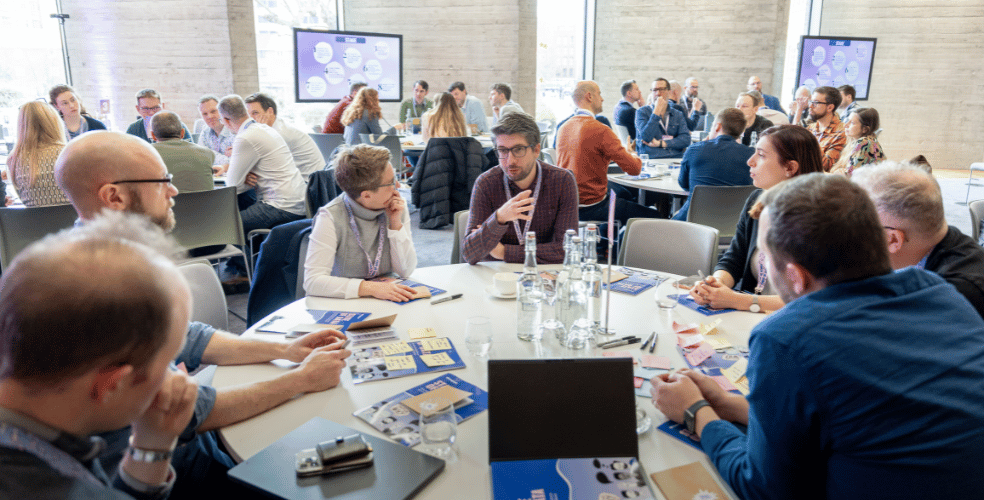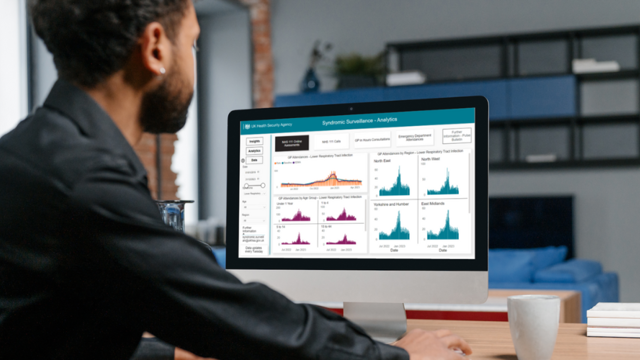Challenge
As part of the government’s response to the Covid-19 outbreak, BEIS asked businesses nationwide to offer their support in the production of ventilators and ventilator components.
Our team worked with BEIS to create a digital form to collect businesses' information, building and publishing the form in just one day.
Solution
In order to quickly tackle this challenge, we deployed a small squad of two software engineers and a product manager. We used the GDS front end kit to develop a form with the required questions, building on a Heroku application, with a PostgreSQL database and Fathom analytics. After a single day, we successfully built the form and launched it on GOV.UK.
We then iterated the form over the next two weeks to make it increasingly robust and user friendly. This involved key principles of Product Thinking. We kept a small team for rapid responses, always asking questions of ourselves and the quality of our solutions, and holding twice daily standup meetings to quickly adjust priorities as needed.
Impact
When BEIS asked for help manufacturing ventilators, its call centres and email accounts were quickly overloaded. Our digital form, therefore, provided a much more efficient way of collecting businesses' details, ensuring that no offers of assistance were missed.
Thanks to the development of this form in a single day, the government was able to proceed with the production of ventilators - a key aspect of its response to the coronavirus crisis. Iterating the form over the next two weeks then enabled us to improve the service for users.
In less than a fortnight the form had over 200,000 unique visits and collected more than 5,000 responses. As a result of our work, BEIS was contacted by multiple organisations that were looking to deliver similar rapid response work.
Working with TPXimpact
When time really is of the essence, organisations need delivery teams and strategies they can rely on to get the job done.
Delivering at pace does not mean compromising on standards or performance, but it does require a specific mindset. Small, dedicated and expert teams help to ensure that effective communication and oversight are maintained on each element of the project.
Even when working quickly, it's important to stop and interrogate the solution. Asking questions such as: 'Why this?' and 'What will happen next?' enables delivery teams to propose things that can be delivered sequentially as time allows, or come up with something simpler to fulfil the brief.
Acknowledging that error rates may increase under time pressure is also essential, in order to build in opportunities to check and revert decisions where necessary.

Shaping the future of data in government
We share some key takeaways on data sharing, AI, innovation, and transformation across government from our Power of Data roundtables.
Read moreOur latest work
Transformation is for everyone. We love sharing our thoughts, approaches, learning and research all gained from the work we do.

Enhancing data reporting with the UK Health Security Agency
Creating a prototype with the UK Health Security Agency to provide interactive, contextual data that supports better ways of working.
Read more
Delivering complex ICT change for the Welsh Government
In 2018, Welsh Government (WG) signed a contract with us as its Cloud Transformation Partner to support the organisation from both a strategic and delivery perspective through a complex ICT change initiative.
Read more
Delivering a modern, transformational technology programme
The DVLA wanted help to deliver its Future State Data Architecture programme - a transformational technology programme to enable the agency to provide modern services to millions of adults in the UK.
Read more
